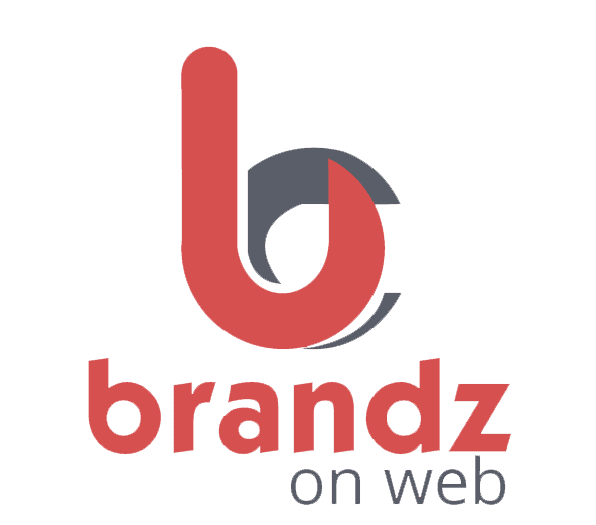SEM
SEM (Search Engine Marketing) is not a creative style, but rather a marketing technique that involves promoting a website or business through paid search engine advertising. SEM typically involves creating text-based ads that appear at the top or bottom of search engine results pages (SERPs) when users search for specific keywords related to the advertiser’s products or services. While SEM ad copy may contain some creative elements such as catchy headlines or persuasive language, the focus is primarily on optimizing the ad content to generate clicks and drive traffic to the advertiser’s website.
What Are Search Engines?
Search engines are like the superheroes of the digital world – they have the power to help us find whatever we’re looking for, no matter how obscure or specific.
Think of a search engine like a giant library with millions of books, magazines, and articles. When you type in a query, the search engine sifts through all of this information and presents you with a list of the most relevant results. But how does it know which results are the most relevant? That’s where the magic happens. Search engines use complex algorithms and ranking factors to determine which results are most likely to satisfy your query. These algorithms are like a secret recipe that only the search engine gods know how to create.
In addition to being powerful tools for finding information, search engines also have a human side. They’re constantly evolving and adapting to better serve their users. They’re like a helpful guide that’s always there to answer your questions and point you in the right direction.
But like any superhero, search engines have their weaknesses. They can be tricked by people who try to game the system with shady tactics like keyword stuffing or buying links. That’s why search engines are always updating their algorithms to stay one step ahead of the bad guys.
In the end, search engines are an essential part of our digital lives. They help us find the information we need, connect with people and businesses, and explore new ideas and perspectives. They’re like the trusty sidekick that we can always count on to be there when we need them most.
What is SEM and Why It’s a Great Investment
SEM (Search Engine Marketing) is an indispensable tool for businesses seeking to expand their reach and engage with a wider audience. By utilizing paid search engine advertising, businesses can increase their visibility on search engine results pages (SERPs) and capture the attention of potential customers. With targeted advertising that hones in on specific keywords and demographics, businesses can ensure that their ads are shown to the right people, increasing the likelihood of generating leads and driving sales. Furthermore, SEM offers the benefit of measurable results that can be tracked and analyzed in real-time, allowing businesses to fine-tune their campaigns for optimal performance. While SEM involves paying for ad placement, businesses can set budgets and bid on keywords to control costs, ensuring that they are only paying for clicks or impressions from interested users. All in all, SEM is a cost-effective and results-driven marketing strategy that can help businesses achieve their goals and drive revenue growth.




How Does SEM Work?
Think of search engine marketing like a game of cat and mouse. You’re the cat, and your target audience is the mouse. Your job is to lure them in with your irresistible marketing message, using search engines like Google or Bing as your bait.
So how does it work? Search engine marketing involves using paid advertising to appear at the top of search engine results pages when people search for keywords related to your business. It’s like showing up at the party in a flashy outfit and making a grand entrance that gets everyone’s attention.
But like any great party, there’s a catch. Search engine marketing can be a bit of a diva – it requires careful planning, attention to detail, and a budget. You need to know which keywords to target, how much to bid, and how to create compelling ad copy that convinces people to click.
Luckily, there are plenty of tools and experts out there to help you navigate the world of search engine marketing. It’s like having a team of party planners who know exactly what to do to make your business stand out and get noticed.
So get out there and start making some noise with Brandz on Web – your target audience is waiting to be wowed!
Is PPC Search Engine Marketing Essential to My Business?
Well, that’s like asking if pizza is essential to a good party – sure, you can have a party without pizza, but why would you want to?
PPC search engine marketing (also known as pay-per-click) is like the cheese on top of your pizza – it’s what makes your business stand out and get noticed in a crowded digital world.
Think of it like this: when people are searching for products or services related to your business, you want to be the first thing they see, like a superhero swooping in to save the day. PPC search engine marketing helps you do just that by putting your business at the top of search engine results pages.
But why is it essential? Well, imagine going to a party and not having any pizza – you’d be left feeling hungry and unsatisfied. Similarly, without PPC search engine marketing, your business might be left feeling invisible and struggling to attract new customers.

What Is Search Engine Marketing?
Search engine marketing is like having a secret weapon in the battle for digital supremacy. It’s all about using the power of search engines to reach your target audience and get your message out there in a big way.

DISPLAY ADVERTISING
Think of display ads as digital billboards that are placed on websites and social media platforms. They can include eye-catching images, videos, and graphics that grab the user’s attention and convey the brand’s message in a unique and memorable way.
With targeting options like demographics, interests, and even geographic location, you can reach the right people at the right time and drive more traffic to your website.
To create effective display ads, it’s important to understand your target audience and what motivates them. What are their pain points and desires? What are they looking for in a product or service?
Once you’ve got a handle on your audience, you can create ads that speak directly to them. Use compelling visuals and messaging that align with their interests and needs. And don’t forget the call to action – you want to make it as easy as possible for people to take the next step and engage with your business.
But display advertising isn’t a one-and-done deal – it requires ongoing optimization and testing to get the best results. Analyze the performance of your ads and adjust your strategy as needed. Think of it like a relationship – you want to continually communicate and make improvements to keep things fresh and exciting.

REMARKETING
Have you ever browsed an online store, added something to your cart, and then left the site without making a purchase? That’s where remarketing comes in. It’s a marketing technique that allows businesses to target users who have visited their website or engaged with their brand in some way, and show them ads across different platforms as they continue to browse the internet.

Why Should I Invest in Remarketing?
Remarketing is like a second chance at love in the digital world – it’s a powerful tool for reconnecting with people who have already interacted with your business and nurturing them towards a conversion.

SEM PPC Advertising
SEM and PPC marketing are like two sides of the same coin when it comes to driving traffic to your website and increasing your business’s visibility online.
The beauty of SEM and PPC marketing is that they can be highly targeted and measurable. By analyzing the performance of keywords and ads, businesses can continually refine their marketing strategy and improve their ROI.
However, it’s important to approach SEM and PPC marketing with a strategic and thoughtful approach. Business owners should carefully research and select the keywords and demographics they want to target, create compelling and relevant ads, and continually monitor and adjust their campaigns based on performance data.
Award-Winning Search Marketing Agency
Are you feeling lost in the digital jungle? Let Brandz on Web be your guide to search engine success! Our team of marketing experts is here to help you cut through the noise and climb to the top of the search engine results pages (SERPs).
With our dynamic duo of SEO and SEM strategies, we’ll help you attract more leads than a honey pot attracts bees. Our keyword research is so comprehensive, we even find the hidden ones that your competitors are buzzing about. We’ll optimize your website’s content and structure so expertly; it’ll feel like we’re crafting a beautiful bouquet of flowers.
Our high-quality backlinks will give your website the credibility it deserves, like a queen bee in her hive. We’ll help your website shine brighter than a firefly at dusk, so you can be the star of the digital night sky.

SEO vs. PPC vs. SEM: What’s the Difference?
When it comes to digital marketing, three terms that often come up are SEO, PPC, and SEM. While they all relate to increasing visibility and driving traffic to a website, they differ in their approach and techniques.
SEO is about optimizing your website to rank higher in organic search results, PPC is about paying for targeted ads that appear at the top of search results, and SEM includes both SEO and PPC as well as other strategies for improving a website’s visibility in search results. Each approach has its own strengths and can be used in conjunction with one another to create a comprehensive digital marketing strategy.
Why Choose Brandz Internet Marketing Agency
Whether you’re looking to increase brand awareness, generate leads, or drive sales like a rocket ship, our team of search engine experts will make it happen. We’ll work closely with you to understand your business needs and create a strategy that’s sweeter than honey.
So don’t be a scaredy-cat when it comes to search engine success. Let Brandz on Web help you unleash your full potential and be the king or queen bee of your industry. Contact us today and let’s get buzzing!

SEM vs. SEO: Do You Need Both?
If you have a limited budget and are focused on long-term growth, SEO can be a cost-effective way to improve your website’s visibility over time. However, if you need to see quick results or have a specific campaign or promotion to advertise, SEM may be a better option.
GOOGLE SHOPPING
When you search for a product on Google, you may see a list of Google Shopping ads at the top of the search results page. These ads typically include an image of the product, its price, and the retailer that sells it. It’s like having your own personal shopper that scours the internet for the best deals and presents them to you in one easy-to-navigate place.
Google Shopping is more than just a directory of products – it’s a powerful tool for retailers looking to increase their online visibility and drive sales. By listing their products on Google Shopping, retailers can reach a wider audience and compete with larger retailers on a level playing field.
YOUTUBE ADVERTISING
Looking to spread the word about your brand, launch a new product, or generate leads? Look no further than YouTube ads! With its massive audience and powerful targeting capabilities, YouTube is the perfect platform for reaching your target audience with a powerful message. So, whether you’re a start-up looking to break into the market, or an established business seeking to expand your reach, YouTube ads offer an unparalleled opportunity to connect with your target audience and achieve your marketing objectives. With the power of YouTube ads at your fingertips, the possibilities are endless.
Search Engine Marketing Services
Keyword research
Conducting comprehensive keyword research to identify the most relevant and effective keywords for a business’s target audience.
Pay-per-click (PPC) advertising
Creating and managing paid advertising campaigns, such as Google Ads, Bing Ads, or social media advertising, to reach targeted audiences and drive traffic to a business’s website.
Ad copywriting
Crafting compelling ad copy that attracts clicks and encourages conversions, including headlines, descriptions, and calls-to-action.
Landing page optimization
Creating and optimizing landing pages to improve the user experience and drive conversions from paid advertising campaigns.
Conversion rate optimization
Analyzing and optimizing conversion rates on a business’s website or landing pages to improve the ROI of SEM campaigns.
Bid management
Monitoring and adjusting bids for PPC advertising campaigns to maximize ROI and minimize wasted spend.
Display advertising
Creating and managing display advertising campaigns to reach targeted audiences with visual ads on websites, social media, or other digital channels.
Retargeting
Implementing retargeting campaigns to reach users who have previously interacted with a business’s website or digital ads.
Analytics and reporting
Tracking campaign performance and providing regular analytics and reporting to help businesses understand the effectiveness of their SEM efforts and make data-driven decisions.
Mobile advertising
Creating and managing mobile advertising campaigns to reach users on mobile devices, such as smartphones or tablets.
